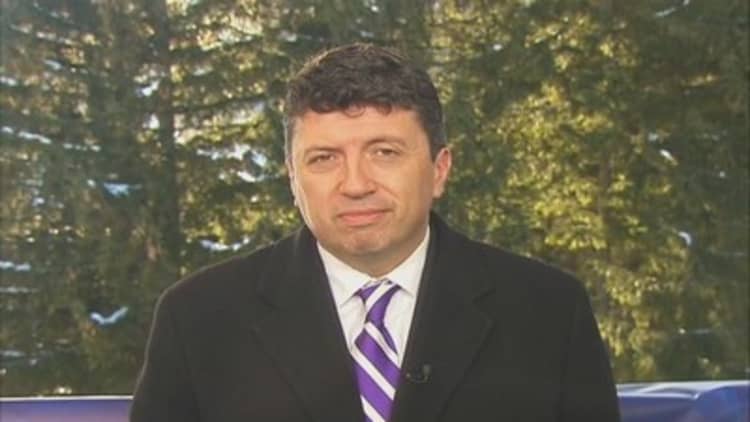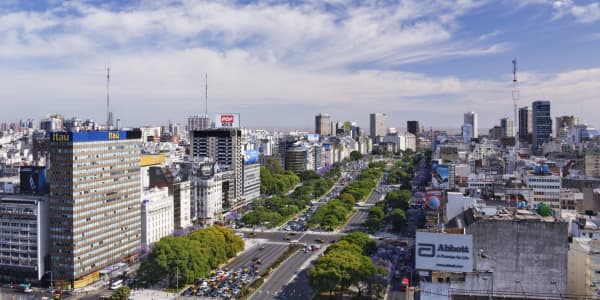Europe is back. Or maybe it's not. It really just matters who's talking and how you frame the issue.
Among the many issues taxing the brains of the best and brightest at the World Economic Forum in Davos, Switzerland, is whether the continent has escaped its recessionary bonds—and is ready to fly again.
The consensus is that the answer to the first part is "yes" while the answer to the second question is "probably not yet." That's to say, the worst is probably over but that doesn't mean things are going to get dramatically better anytime soon.

"I think the answer is yes-ish," Sir Martin Sorrell, CEO at WPP Group and noted British businessman, said at a panel discussion with other economic experts, when asked if he thought Europe is recovering. "There are two Europes. There's a Western Europe and there's an Eastern Europe. I'm very bullish about Eastern Europe."
That would include Germany, Poland and Russia as leaders emerging from the global financial crisis.
(Read more: Davos pros say US looking good. Are they right?)
Elsewhere, though, the news is not so good.
"Everyone expects the euro zone to grow, so that's good. After several years of crisis, it's quite normal to look on the bright side of things, to get excited about improvements," said Axel Weber, the German economist and former head of the Deutsche Bundesbank, Germany's version of the Federal Reserve. "It may be too one-sided of a view."
(Read more: Robert Shiller: I'm still investing in the stock market)
One of the things working against Europe is the edge the U.S. has developed in energy.
"The shale gas revolution really changed the competitive advantage of Europe compared to the U.S.," said Giuseppe Reggi, chairman of Eni SpA, Italy's largest energy company.
(Read more: Richest of the rich ponder how to level the field)
Harvard economist Kenneth Rogoff offered a bit more hope for Europe, saying its technology will help the region stay at least somewhat competitive.
"Europe is coming back, but you really can't talk about it being all the way back," said Rogoff, who co-authored the seminal book "This Time is Different," which explained the trouble countries have coming back from financial crises and too large of a debt-to-GDP ratio. "That debt overhang of public and private debt in the periphery is something that's got to be dealt with a lot more aggressively."
—By CNBC Finance Editor Jeff Cox. Follow him on Twitter @JeffCoxCNBCcom.





